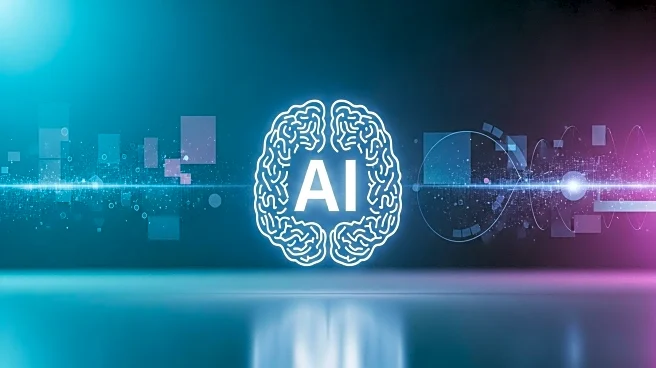What's Happening?
The 2025 HR Tech conference in Las Vegas highlighted the need for strategic use of technology and data to support workforce development. Keynote speakers and industry experts discussed the importance of AI-powered learning systems in accelerating skills-based employee development. The conference emphasized that AI should drive outcomes, not just check boxes, and that HR leaders must lead transformations rather than rely solely on IT departments. Trust and human-centered AI adoption were identified as crucial elements for successful implementation, with a focus on building AI literacy across organizations and maintaining human oversight to mitigate risks.
Why It's Important?
The insights from the conference underscore the growing role of AI in HR practices, which can significantly impact workforce productivity and organizational adaptability. By prioritizing skills development and AI literacy, companies can enhance employee engagement and performance, leading to better business outcomes. The emphasis on trust and human oversight in AI adoption highlights the need for ethical considerations and strategic alignment in technology implementations. Organizations that successfully integrate AI into their HR strategies stand to gain a competitive advantage by fostering a culture of continuous improvement and innovation.
What's Next?
HR leaders are expected to focus on integrating AI into their workforce strategies, starting with low-risk applications and gradually expanding to more critical functions. Continuous monitoring for bias and accuracy will be essential, along with preserving human domain expertise. Organizations may need to redesign entry-level roles to reflect the future of work, emphasizing skill acquisition and flexible career pathways. The conference suggests that successful AI implementations will require a strategic approach, aligning technology solutions with clear business objectives and employee needs.
Beyond the Headlines
The conference highlighted the ethical dimensions of AI adoption in HR, emphasizing the importance of human judgment in guiding AI tools. The potential for AI to amplify biases and produce algorithmically logical but practically flawed outcomes necessitates careful oversight. The discussions also pointed to the long-term shift towards skills-based workforce transitions, driven by economic realities and changing workforce dynamics. Organizations that prioritize strategic alignment and cultural enhancement in their technology implementations are likely to achieve sustainable transformation.









